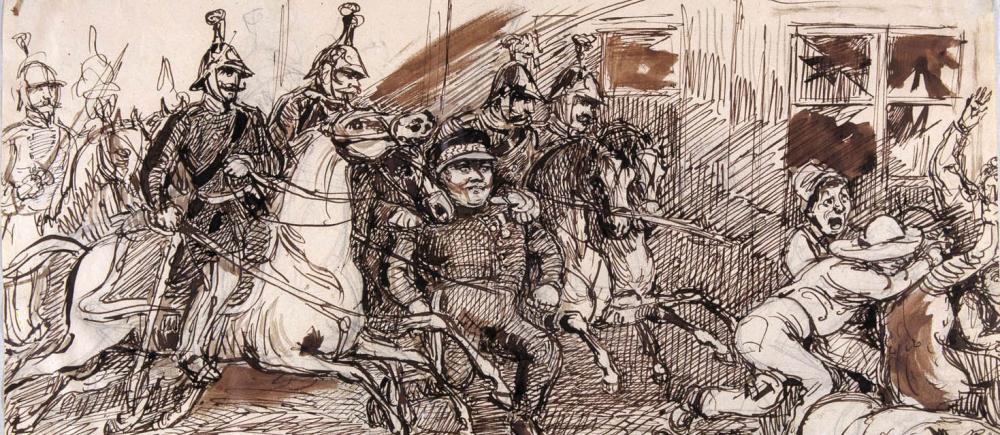The 1848 Revolutions

The single most striking feature of the 1848 revolutions was their simultaneity. This was the only truly European revolution that there has ever been. Neither the great French revolution of 1789, nor the 1830 revolutions that began in Paris, not the Paris Commune of 1870, nor the Russian Revolutions of 1917 achieved this effortless cascading from one state to the next. Even the so-called 'velvet revolutions' of 1989 were confined to formerly communist states of central Europe. By contrast, the revolutions of 1848 began in the Italian peninsula (or in Switzerland if you count the Sonderbund war of 1847) and spread to Paris, Vienna, Milan, Rome, Venice, Berlin, Munich, Cologne, Frankfurt, Copenhagen, Budapest, Dresden, and so on. This combination of simultaneity with diversity was a puzzle to contemporaries and has remained one to historians ever since.
This Special Subject examines the outbreak and course of the revolutions and their impact on Europe and the world. Why did revolution break out across the continent in 1848? Were these truly ‘European’ upheavals, sustained by trans-national networks and communications, or parallel tumults generated by the same continent-wide socio-economic pressures? Who were the revolutionaries of 1848 and what did they want to achieve? Why did the traditional regimes cave in so fast to their demands? How was it that the revolutionaries, after the swift successes of spring, were so quickly unseated and swept from power in between the summer of 1848 and the spring of 1849? What kinds of political thinking (liberal, nationalist, socialist, republican, feminist, democratic, conservative) were in play among the revolutionaries and those who sought to impede their progress, and how did the course of the revolutions transform these trains of thought? Since many contemporaries, especially on the liberal and radical left, saw in the events of 1848 the machinery of history in motion, it is worth asking how the revolutions shaped historical awareness. The resonance of the revolutions in historical and literary writing will form another strand of our investigation.
It has long fashionable to characterize the revolutions as ‘failed’ tumults, whose impetus was bottled up by the force of counter-revolution. This paper will swim against the current of this view, exploring the impact of the revolutions on cultures of governance and administration, on cultural life and the historical awareness of politically educated Europeans. The paper will also seek to set the revolutions in their global context, seeking to do justice both to the pressure of developments in the wider world, and to the impact of the revolutions on societies outside Europe, such as the USA and Japan. Finally, it will explore the question of what relevance the study of an ‘unfinished revolution’ may have for our own times.
Image: "March troubles" in Stockholm, 1848. Fritz von Dardel - Nordiska Museet - NMA.0035335
This material is intended for current students but will be interesting to prospective students. It is indicative only.
